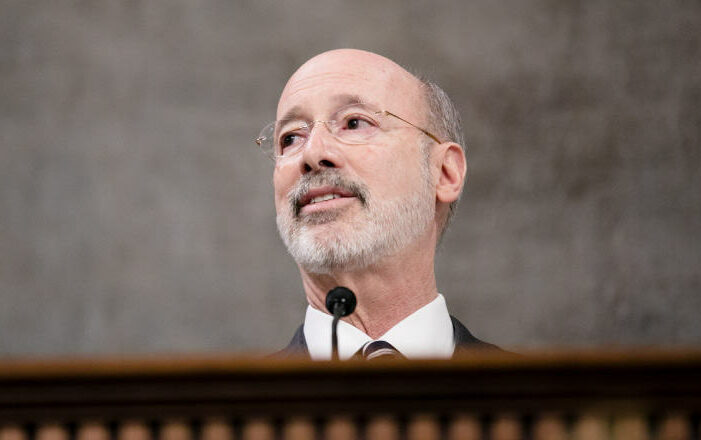After Pennsylvanians endured a year of Gov. Tom Wolf’s domineering COVID-19 response, they ratified landmark constitutional amendments that limit his emergency powers. But despite this resounding rebuke of Wolf’s penchant for unilateral control, the governor is just as much a “lone wolf” as ever.
In 2019, Wolf ordered the Pennsylvania Department of Environmental Protection to create regulations pushing the commonwealth into the Regional Greenhouse Gas Initiative (RGGI). Now, despite a lack of public support, significant pushback from the General Assembly, and with a little more than a year until the next gubernatorial election, Wolf is determined to finalize the process of entering the economy-harming accord.
Polling from February shows voters do not support Wolf’s plan. That’s because voters seem to understand that RGGI imposes taxes on energy generation, increasing home electricity bills.
Wolf’s controversial order also flagrantly bypassed the legislature, which our state constitution grants authority over taxation. To stop this unilateral behavior, the legislature has repeatedly introduced bills to reassert its power over any tax scheme, including RGGI membership. Last year Wolf vetoed one of those bills, and he may be forced to veto another in the coming months. If the governor succeeds in his lone push, there is no doubt the courts will need to weigh in on the legitimacy of imposing taxes via regulation.
Of the 11 other states that have joined RGGI, all have done so through legislation. Only Wolf insists on doing everything himself.
Of course, this habit was ever-present during the COVID-19 pandemic as Wolf wielded his emergency powers with impunity. In March 2020, he shuttered all “non-life sustaining businesses” and offered waivers in a convoluted and seemingly unfair way. Wolf also issued a record number of vetoes—a total of 23 for 2019 and 2020, only two fewer than in his previous four years in office—most often aimed at bills that would reopen portions of the economy. As a result, Pennsylvania scraped the bottom of nearly every economic and pandemic-related metric, sending the governor’s June approval rating through the floor.
But Wolf’s go-it-alone style doesn’t stop at RGGI or emergency powers.
Pennsylvania governors have a legal obligation to certify that state budget appropriations do not exceed revenues. Despite this, Wolf allowed unbalanced budgets to become law twice, in 2016 and 2017. The results were drawn-out budget battles and lawsuits.
Wolf has also routinely allowed the agencies under his purview to spend more than the taxpayer dollars the General Assembly approves in the budget. He’s done this to the tune of $400 million in 2017, $613 million in 2019, $1 billion in 2020, and $849 million in 2021. This forces the General Assembly to find more revenue after the fact, turning taxpayers into little more than the Wolf administration’s credit card.
And just weeks ahead of the November 2020 election, the Wolf administration changed guidelines for ballot signatures, deadlines for counting mail-in ballots, and rules for “drop boxes” without legislative approval. These actions cast doubt on the efficacy of the election and fed into unsubstantiated claims of mass fraud.
These are just a few examples of the many ways over the last seven years that Wolf has acted either beyond his authority or violated the authority of other branches of government. Despite the people amending our state constitution to put a stop to the governor’s overreach, Wolf persists. And he’s doing so to the detriment of Pennsylvanians.
Joining RGGI will hurt our economy. States that participate in the RGGI have seen major decreases in goods manufacturing (down 8.6 percent from 2007 to 2019) thanks to rising energy costs. That could translate into a $3.8 billion-per-year decline in manufactured goods and the elimination 17,460 manufacturing jobs in Pennsylvania.
That doesn’t include the estimated 1,400 jobs lost in power plants, and another 3,500 from lost fuel production.
The governor should give up his lone wolf approach. Wolf needs to finally start listening to Pennsylvanians and working with the General Assembly. The May 18 referendum was a rejection of his use of crises to remake the state. That same sentiment applies to RGGI.

